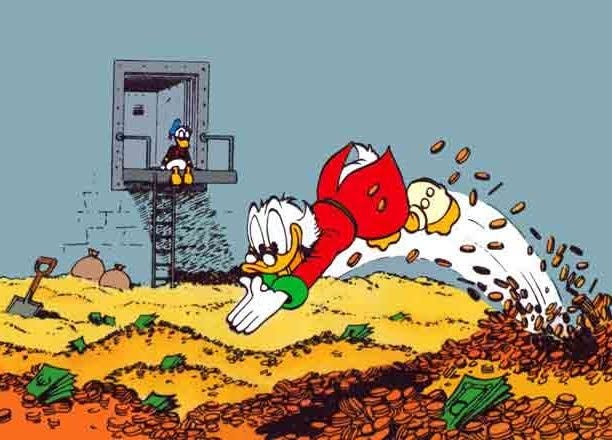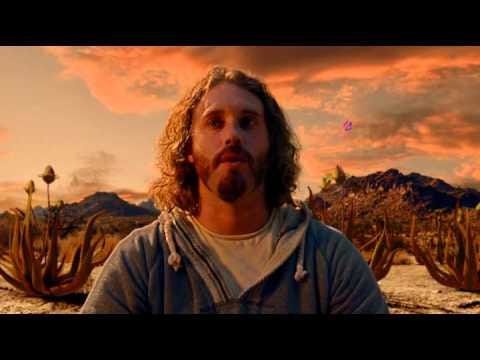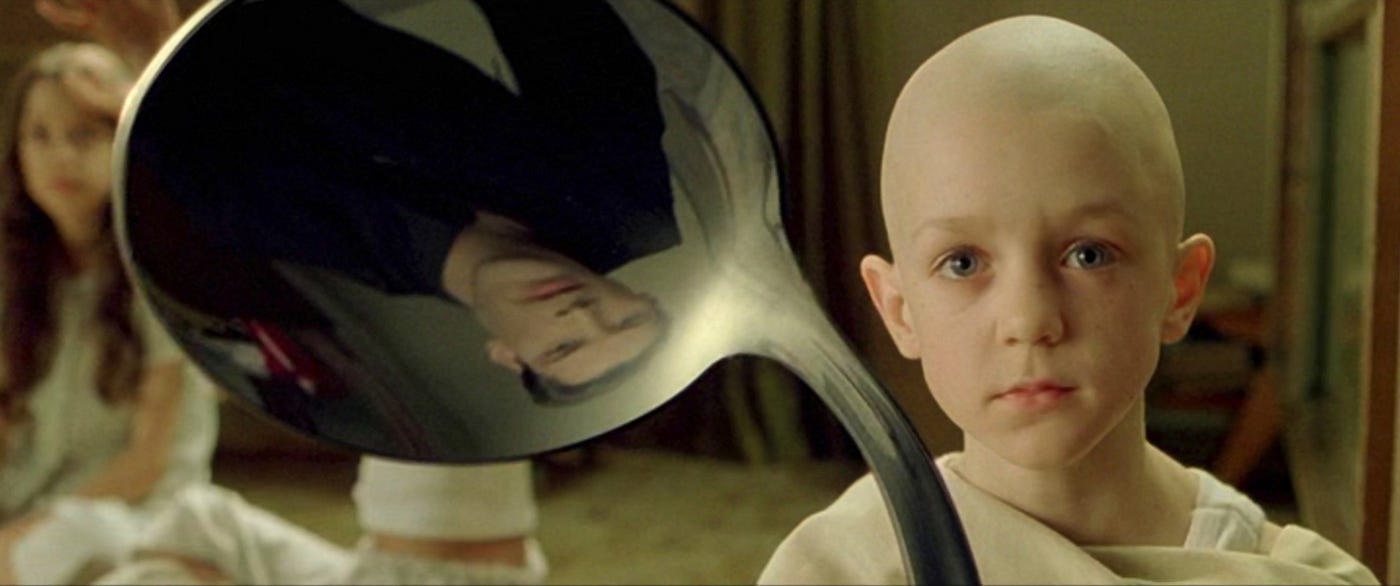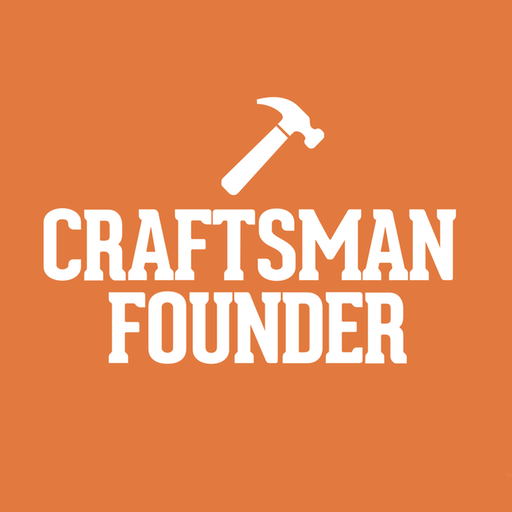Why To Start A Company
Sometimes it is hard to know why to start a company. I hope by sharing my story with you, it will help you decide whether it is time to make the leap.
I felt like I was about to throw up as I uttered words I’d never thought I would have to: “I’m sorry, this is really hard, I appreciate everything you’ve done for me, but I have to let you go.”
He looked at me stunned like a deer in the headlights. Though he knew things weren’t going great recently, it looked like he hadn’t even thought of being fired. He said: “Ok, wow. Didn’t see that coming. So two weeks then?”
I had consulted my investors and lawyers the week before this conversation and they both told me that the termination should take effect immediately at the end of the day on a Friday. This was brutal. I said: “No, you will need to take your belongings home right now. Today was your last day.”
A year earlier, when I started my first venture-backed company and hired my first employee, I was on cloud nine. Sitting in a coffee shop with this brilliant, talented program- mer building my ideas, I thought to myself,Finally after all these years, I’ve made it. I am a real entrepreneur. Little did I know how much the real work of entrepreneurship was ahead of me. Like firing him.
Without my first programmer, I would have never been able to get the company off the ground. But as we grew from a team of two to six and twelve and twenty, the day came when the culture had shifted and we weren’t working from coffee shops and living rooms anymore. We had our own office space.
I learned the hard way that sometimes the people you need in one size of an organization don’t always fit as things grow. And though I couldn’t have started without him, it was time that my first hire became my first fire.
The idea terrified me for weeks. I felt like I had failed my employee, even though we had tried multiple times to make it work. Every time I talked to my advisors, they would tell me: “Hire slow, fire fast.” Or “Do it now, don’t wait another day.” But how could I be so cold to a friend who helped me get my company off the ground? What would I tell him? How would he react?
I hated myself. My heart was on the floor and my stomach was in my throat. I couldn’t believe the things I said. I sounded like a total douche. What was I doing? How did things get so bad? Why was I even starting this company in the first place? This was not the last time I would have to do this, though. Not by a long shot.

I’m no Steve Jobs. I’ve spent years looking up to visionaries who’ve put a dent in the universe: Richard Branson, Mark Cuban, Elon Musk. These guys seem to get it. They seem to have some natural talent for building great companies almost instinctively.
But I’m not them. I spent a decade chasing short-term gains, quick money, and early exits. I chalked up my daily frustrations — with myself and with my companies — to the rigors of entrepreneurial life and I continued to grind through it. I wore down. I burned out. I tasted bankruptcy. And ultimately I came out on the other side with a very different perspective.
With all my failures, I eventually realized that the only way I could ever build a company and a career that I was truly proud of was by treating startups as a long-term craft — by protecting the downside and exploiting upside optionality when it came.
I became a craftsman founder dedicated to skillfully building companies that held a clear mission and honored my core values, a storyteller committed to building and maintaining relationships with customers, investors, and my personal support system. I devoted myself to creating, refining, and improving my craft for the long term. I learned to see the world in a different way by asking better questions.
“Quality questions create a quality life. Successful people ask better questions, and as a result, they get better answers.” — Tony Robbins
My life changed dramatically after repeatedly asking myself one simple question: why? Let’s explore how. If you are like me, you started working at a startup because you hope to found a startup of your own one day. But how often have you stopped to ask yourself why you are doing this?
This question has bothered me since I was a small child. One Sunday, coming home from church, I was sitting in the back seat of our minivan and I asked my mom: “Why are we here?”
Of course she immediately thought, Uh oh, isn’t he a little young to be asking that? She tried awkwardly to skirt around the question of the birds and the bees, but I said, “No, Mom, why are we here? What’s it for?” She realized, with relief, that I was trying to ask what the meaning of life was but didn’t have the words for it yet. I clearly remember a sensation of deep dread that morning. I think it was the first time I had ever felt dread.
But the meaning of life is not what I want to talk to you about. Let’s just focus on startups. Why work at startups? Or why start a company?
It doesn’t matter if you are running a food cart, starting a law firm, or founding a high-tech company. It doesn’t even matter if you are rich from having already sold companies, or if you are still living paycheck to paycheck. If you haven’t put in the time to explore why you do the things you do, you might be pursuing the wrong things for the wrong reasons.
The trick is to go deeper than the shallow ‘why.’ Look closer at what most people are afraid to face: the underlying why of your motivation to work harder than anyone else you know.
The ultimate question is: What’s that damn chip on your shoulder that you can’t seem to get rid of?
The easy answer to the why question is: money. It’s the wrong answer, of course; it’s only surface level. But as a first-order approximation, it gives us a good starting point.
For years I thought money was my main motivation too. Sure, I wanted to change the world for the better, use the money to have more control over my life, and spend more time with my family.

But if I am honest with you, truly brutally honest… I really wanted to get rich. Badly. Embarrassingly so. I still do. I often dream of getting ‘Uncle Scrooge rich,’ right down to the swimming pool full of gold coins.
That would be amazing, albeit hard to swim in.
So, why didn’t I just start a company early in my career? Everyone knows entrepreneurship can be a fast path to wealth. So why, like many people, did I begin my entrepreneurial journey by working at someone else’s startup?
I was too scared to start my own company because I thought I didn’t know enough to succeed. So, I got a job at a startup, hoping to learn its secrets while still getting a regular paycheck.
But here’s the biggest takeaway from my time working in other people’s startups: you won’t get rich unless you are near the top of the pyramid.
It’s an incredibly rare startup that makes its employees (who often own a fraction of a percent in company’s stock) millionaires. Facebook and Twitter are the unicorns of startups, and if you are working for a startup with a fraction of a percent in equity, you are almost certainly not getting any closer to wealth than if you were working at any other regular job. Founders and executives can make out well with a small exit, but the employees rarely do better than buying a new car or maybe a small house.
There are still plenty of other great reasons to work for startups. You can wear multiple hats and deal with less (or at least different) politics. These are all valid motivations to work for startups, but getting fabulously wealthy is not a good reason to be a startup employee. After working as a startup employee for seven years, I realized that I was no closer to my goal of great wealth than when I started.
So I quit my job and started my own company. My new goal was to change the world for the better. And if I eventually got rich in the process, that wouldn’t be bad either.

Many founders want to change the world for the better, and I ask them the same question I had to ask myself: why? Why do you want to change the world for the better (like everyone else on HBO’s Silicon Valley)? It certainly sounds more honorable and virtuous than admitting to pure greed, but it still doesn’t address the deeper ‘why.’
Over the years, I have advised and mentored hundreds of entrepreneurs, and I have heard every reason in the book for starting companies. Maybe you too want to make a difference. Or you want to create a legacy. Or you want to help technology reach new and exciting heights. Or you have a deep desire to help people around the world. Or, with the accumulated wealth, you want to give back to those around you.
Good, now we are at the second-order approximation. You want to change the world with your work, or you want to earn enough money to achieve some life-long noble aspiration.
Keep digging.
On the journey to discover why you really start companies, you’ll have many false starts. My initial goal was to have so much money that I could do whatever I wanted, whenever I wanted. If I wanted to spend a year in Paris with my wife, I could. If I wanted to study the ancient game of Go in Japan while eating great ramen, I could. If I wanted to climb Mount Kilimanjaro, I could.
It took a long time for me to realize that this goal was actually a false choice. There was nothing to stop me from going on those adventures without having a lot of money. In fact, I had friends who have accomplished most of the things on my list without being rich. They slept in hostels and ate top ramen, but they made it work. Their examples were just one clue that the dream I created for myself wasn’t my real motivation.
If you want to make money or change the world, you might think you want it in order to achieve some end goal. But I am telling you that any external goal you set for yourself is like the spoon in ‘The Matrix’ — it’s just an illusion.

It might be a comforting illusion to think you have a noble reason for wanting to get rich, but that comfort keeps you from digging deeper. It’s just like climbing a mountain: the higher you go, the harder it gets. There is no spoon. Why did I want the freedom I thought money could buy? Why did I want to change the world for programmers around the world? If you look past the illusion of those goals, what is left?
The proverbial chip on your shoulder.
Things were going great at the company I started, and it seemed like I could do no wrong. I felt it was finally my turn. At least for a while. After all, I had raised ten million dollars from great venture capitalists, I had hired over forty employees, and we had signed up over a hundred thou- sand developers for the service. If you believe the statistics you read in the news, my company was in the top 0.001% of businesses in America (at least when it comes to getting outside investment).
That was until revenue growth didn’t meet investors’ expectations. I had to lay off employees, and I didn’t know if the service would stay open much longer. Firing my first employee those years earlier now looked like a walk in the park. In those difficult moments, I thought a lot about my goals in life. I examined my reasons for wanting to achieve personal freedom and to change the world for the better.
I had been working like a maniac, running my company, with no personal freedom at all. I had created a service that developers depended on. Now, I was facing a possible shutdown and pissing off a hundred thousand people. For what? Riches I might never get? To start all over again with another company? Why?

I had to peel another layer of the onion away in order to find the next answer. I did startups because I had to. I had a deep burning desire. I had been entrepreneurial since I was a kid, trying to sell dream catchers I made as a craft or when I wrote a book of magic tricks for Hoyle before I was old enough to legally sign a contract. It was in my blood. But I still couldn’t pinpoint exactly why I had this burning desire yet.
If you’re still keeping score, I had arrived at a third-order approximation. Getting here had taken years of introspection and I was finally getting close. But to make the real break- through, I had to ask myself one more time: why?
Why did I have to do startups? What did I have to prove?
Many great entrepreneurs share a secret they rarely talk about: a feeling of never being good enough. Of course, there are the Richard Bransons of the world, who claim perfectly happy childhoods, but many founders I know hide skeletons in their closet.
I will share with you one of my skeletons in hopes that it might help you discover your own. Maybe for someone out there, this story can act as a guidepost for thinking their own motivations in a new light. The hard truth is that the skeletons don’t stop chasing you just because you have more money.
When I was in middle school, my parents divorced. The divorce, however, didn’t cause me any psychological distress. My father had already been away from the house a lot, so I was used to his absence. My father’s absence caused me little distress.
In fact, in many ways I had a very happy childhood. After my parents’ divorce, my mom overcompensated with love and generosity. She took us on regular vacations and took us to new countries and cool places almost every year. At Easter, my brother and I looked forward to large inflatable bunnies as big as us, surrounded with every chocolate known to man. At Christmas, the tree was always overflowing. Look- ing back now with two kids of my own, I have no idea how my mom was able to always provide so much on a meager teacher’s salary.
But for my mom, life did become harder after the divorce. She suffered from health complications, depression, and a series of car accidents. She began turning to alcohol. When I confronted her about how much she drank, she would tell me that it was her only real friend.

Sometimes I would walk around the house and find a half-dozen glasses of half-finished white wine and know what was coming next. I would run to my younger brother’s room and urge him to just try to go along with whatever Mom said. Accept the blame, don’t fight it.
Alcohol-induced rages became a regular occurrence for a period of time. It was very scary and confusing for me as a child. I tried to protect my brother from them as best I could even though I barely had the tools to protect myself. To this day, my brother doesn’t believe my mom had a serious prob- lem with alcohol, which makes me both proud and sad.
I deeply love my mother, and she has since become sober, which has allowed me to create a new relationship with her. But in my youth, I often felt lost and out of control. I felt trapped in a scary and unpredictable world.
At the time, I thought my mom’s rages were my fault. I thought that if I could just be a better son… if I could just get along better with my brother… if I was good enough, maybe my mom wouldn’t have to drink so much.
But what does any of this have to do with starting companies? Digging into my past revealed a deeper motivation behind my drive to create startups.
I start companies to prove to myself that I am good enough. I start companies with the hope that it will help me feel more whole inside — that I am worthy. I want to feel like I have the tools to control an unpredictable world. Almost as importantly, I want to pass on these tools to others, like I tried to do with my brother so many years ago. I hope to pass these tools on to you.
Entrepreneurship isn’t about monetary wealth. Entrepreneurship is about the wealth you find within yourself when you succeed at achieving impossible goals and the growth you find when you fail. Entrepreneurship is about the relationships you build with yourself and those around you.
It can be incredibly transformative to found a company. The process requires a level of self-examination that most of us fear. But it is more than worth it. And it’s entirely in your control.
Your past can either cripple you or empower you. You choose. You can let your feelings of inadequacy, guilt, and shame keep you working jobs that suck your soul. Or you can go out and, with a little luck and guidance, write a new story of your life. It can be post-traumatic stress or it can be post-traumatic growth that defines you.
You know as well as I do that in reality you don’t have a choice. Your skeletons chase you no matter where you hide. It’s about time to find your inner strength to pull through and make something of yourself.
After laying off staff and regrouping, my company rallied with gusto. In the upswing, we were bought by a Fortune 150 company. It was not an inevitable outcome. It could have all easily fallen apart, and for many in the same position it does. But total failure would have been fine, because either way I still have work to do.
I still have a chip on my shoulder and a burning desire to help others through my work.
That’s what entrepreneurship means to me. And that’s what success means to me. Feeling good enough. Feeling worthy.
So do I feel good enough now? Do I feel worthy? Some days yes, some days no. But that’s okay. It’s a work in progress.
And it’s the work of a lifetime.
This was an excerpt from my new book, Finding Success in Failure: What I Learned From 10 Years of Startup Mistakes.
The audiobook has just been released as well.
About the Author
Lucas Carlson
Lucas Carlson is a hands-on consultant, author and entrepreneur. He helps founders discover opportunities for growth, both for their companies and for themselves. He was the CEO and founder of AppFog, a popular startup acquired in 2013 after signing up over 100,000 developers and raising nearly $10M in venture funding from top angels and VCs.
